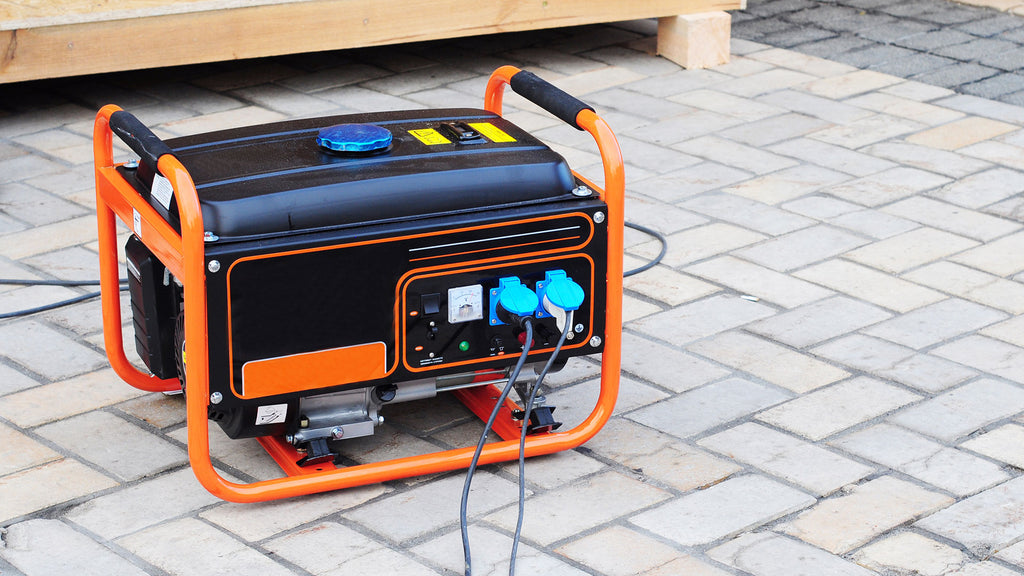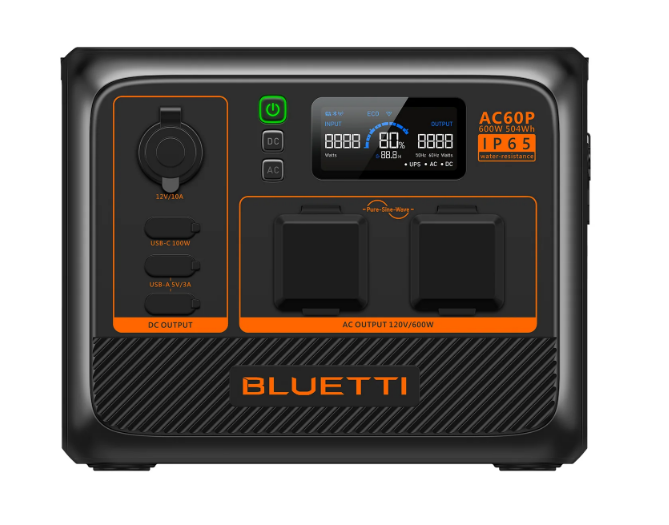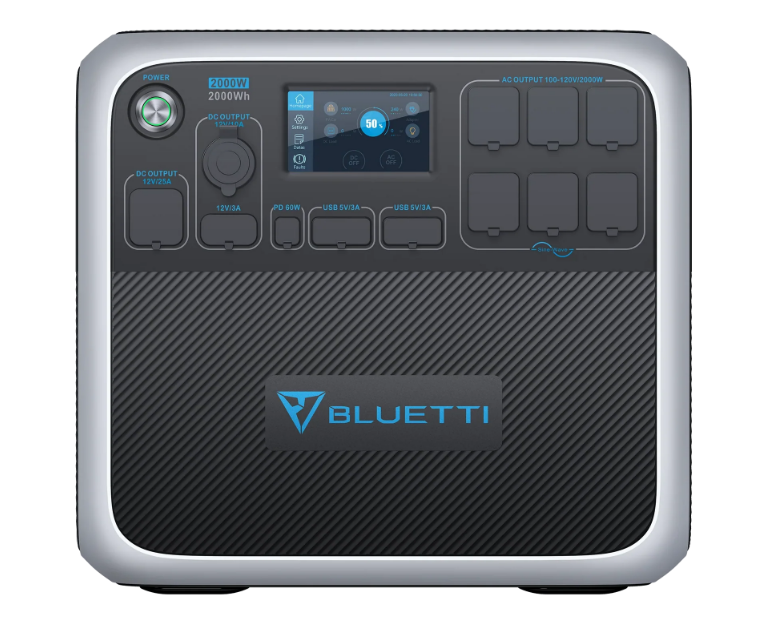When thinking of a reliable source of electricity, two contenders come to the forefront: mobile energy stations and generators. Think about a sudden power failure, an adventure-filled outdoor trip, or an unexpected emergency. A reliable power source could be your game-changer, but of these two, which is most suitable for you?
In this article, we will make an out-and-out comparison between these two in aspects such as their capabilities, costs, maintenance, and portability. We'll also shine a light on some of the top BLUETTI portable power stations that have hit the markets and shed light on what potential they offer.
What Is A Portable Power Station?
A portable power station is a device that one carries around, and therefore, it makes electric support everywhere you go essential. It is a battery that can be charged up, an inverter that turns it into power, and outlets with connectors to fit all sorts of plugs and devices. Unlike a generator, portable power stations don't require any fuel or any smoke, hence they can be safely and cleanly used indoors and outdoors.
Portable power stations are basically designed to be carried and moved easily. Generally, they are lightweight and small enough to carry in your hand or bag. They could provide you with power for exciting times like camping, an RV, or even tailgating; at the same time, they could mean serious situations such as blackouts or in case of an emergency. On the same note, they can also serve as backups for home appliances like fridges, TVs, or laptops when the power goes off.
What Is A Generator?
A generator is a machine that uses mechanical power to provide electricity. Mechanical power may originate from different resources like the engine, the turbine, or the hand-crank. Electrical power may light many different kinds of things like lights, fans, computers, or even the fridge.
All generators have their pros and cons depending on the type and how you use them. One of the good things is the high output of power they put out, which is really beneficial for big jobs and big appliances. It is possible to manage many applications for the electricity of high power. Another upside is their flexibility of fuel, in that it can work on various fuels such as gas, diesel, or propane. These fuels are easily accessible, located and maintained, and transported.

But there are negative aspects to generators as well. Among these include the need for fuel, which can be costly and troublesome. There is also the possibility of fuel running out on you, especially at the time that you need it the most. The other bad thing is the noise and the pollution that can be highly annoying and unhealthy. The noise disturbs peace around people, while the pollution could dirty the air and hurt the planet.
Generators are widely used in different situations and places, such as building sites, RVs, boats, homes, and businesses. They can give you power when the grid is off or when you can't get electricity. It may also add to grid power, or give you a different source of power.
Key Differences with Portable Power Station and Generator
It's either portable power stations or generators when you need some power on the move. Both can complete the task, but they differ. All of them have pros and demerits, but they are the kind of things that you need to think through before deciding to go for one. So here is the main difference between them:
- Fuel source: While power stations work based on batteries you can charge with solar panels or other sources of power, generators burn fuels like gasoline or propane to make electricity.
- Power output: The generator gives a higher output than the portable power stations; therefore, bigger appliances and devices are supported. Lesser power is given by portable power stations, but in proportion to run devices and appliances of smaller size.
- Run time: The generator can run as long as one has fuel and refilling is easy, unlike the portable power station that does run out of battery life and one has to look for another source of power to charge it, which takes some time.
- Cost: Generators and portable power stations are usually very expensive equipment, with the latter, however, able to save a little on fuel, if at all charged by solar panels.
- Maintenance: In terms of the portable power station, the power station requires less maintenance in regards to cleaning and changing the battery only after a given interval. Generators, however, call for much care in maintenance, such as changing of oil, fuel, and filter.
- Portability: Being small and light, a portable power station can easily be carried or transported from one place to another. Generators are heavy and big, and many of them require at least wheels or a car to get to a new location.
Is a Portable Power Station Better Than a Generator?
It's all up to your needs. Portable power stations are environmentally friendly, very silent, and need low maintenance. They are safe, portable, and require basic technical knowledge. Generators are better in the case of higher power requirements. They are characterized by a higher power output and the ability to run continuously on fuel, thus are most suitable for either very long power outages or simply to feed big household appliances. So, the choice is only made by your individual power requirements and the condition.
Benefits of Using a Portable Power Station
A portable power station is silent, unlike noisy generators. They are environmentally friendly in a way because they don't release any form of harmful gases. They may be charged with any form of renewable energy such as solar power, thus ensuring not only sustainability but also economic savings. The basic design of these things is all about portability and flexibility. Unlike a big generator, these ones can be easily carried around to service different devices, from small electronics to laptops, depending on the capacity. Thus, this is a flexible power solution for a number of needs.
3 BLUETTI Portable Power Station Recommend
BLUETTI AC60P Portable Power Station

If you are looking for an electricity backup that is small but mighty, this might be the one for you. The extremely sophisticated tool comes with a 403Wh LiFePO4 battery that gives energy in over 3,000 cycles, and also a 600W inverter to run your gadgets and appliances. Right at the cutting edge of modernity, the equipment also contains a wireless charging pad and a USB-C port, making it easy to use. More so, it is dust and water-resistant, meaning that you can have it outdoors without any worries. The unit can be recharged with AC, solar, car, or lead-acid battery, in addition to which two B80 packs can be added for extra juice.
BLUETTI AC200L Portable Power Station

It's a workhorse in this line of power stations, suitable for rough applications. It has a 2,048Wh LiFePO4 battery and a 2,400W AC inverter for your bigger gadgets. There is even a UPS feature to allow providing continuous power at blackouts. It has six different methods of recharge available, among which there can be a solar panel or expanding with additional battery packs of any size necessary.
BLUETTI AC200P Portable Power Station

Presenting another powerhouse that literally breathes versatility and adaptability. A strong core includes a 2,000Wh LiFePO4 battery with over 3,500 cycles and a 2,000W AC inverter that takes care of all your big appliances. It even has your back during blackouts with its in-built UPS functionality. With 6 modes of recharge available, including solar panels, and even expandable options through additional battery packs, it's as flexible as you need. There's an app for complete remote management of the whole power station and a 6-year warranty. In short, the AC200P is a powerhouse—ideal for advanced, reliable, and portable power needs.
What Can You Do with a Portable Power Station
Portable power stations are versatile devices that can supply power to off-grid locations and hence serve a myriad of purposes. On a camping trip, power from these stations could be used to power fixtures such as lights, fridges, and fans. Power supply to emergency situations may also be availed for devices like phones, laptops, and radios.
Final Thoughts
To recap, when in need of some electricity on the go, there are only two: portable power stations or generators. Both do the work, but they are not the same. Now, every product has its pros and cons, and it's up to the customer to thoroughly weigh them to choose one over the other. However, for us, we would definitely recommend a portable power station over a generator. Why? Now, a portable power station is an amazing device to power you without a lot of hassle. Small and light, but strong and fast. From anything ranging from your phone to your fridge, they can power just anything— and all in pin-drop silence and without emitting even one iota of a pollutant to the air; and all that without ever hurting your bank account due to outrageous fuel expenses. Truly, they are the one-and-sole solution to all your portable power needs.




